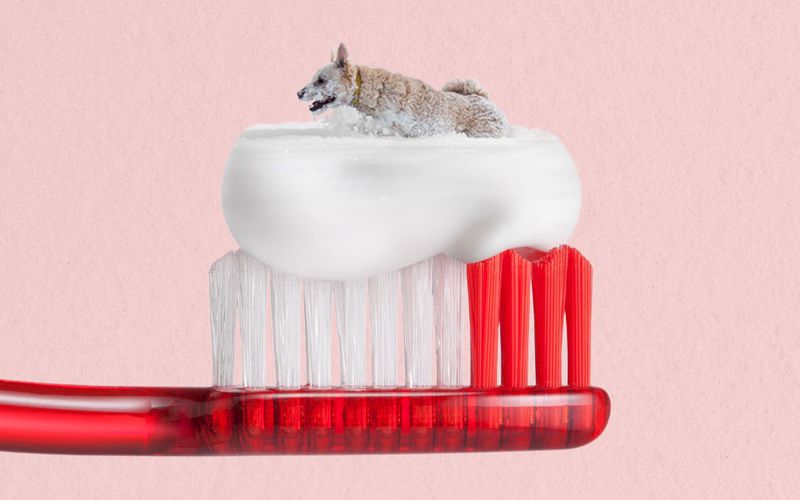

6 Tips to Educate Your Clients for Pet Dental Health Month
February is National Pet Dental Health Month, which makes it a great time to talk to your clients about the importance of dental care for pets and how it can contribute to better general health. You may be well aware of how impactful periodontal disease can be on a pet's overall health, for example, but pet owners aren't always as educated on the subject. Use the following six tips to help illustrate the necessity of good dental health for your clients' cats and dogs.
1. Why Is Pet Dental Health Important?
When pet owners learn that bacteria invade tissue under the pet's gum line, causing an infection that can lead to painful issues, such as bleeding gums, lost teeth, and even fractured jaws, they will be more open to preventive procedures. Preventive dental care for pets can be an expensive commitment, but pet owners may be more willing to accept the cost if they understand the consequences of not addressing their pet's oral health.
Hanging images in your exam rooms and waiting areas depicting before-and-after pictures of pets affected by dental disease may speak even louder and underscore the issue. When your clients see the damage caused by dental disease, they will be more inclined to schedule an appointment. In addition, explaining how oral bacteria has the potential to enter the pet's bloodstream and damage organs throughout the body can help them understand that the pet's overall health is at stake.
2. What Does a Professional Dental Cleaning Entail?
Educating your clients on what's involved in a professional veterinary cleaning and why these steps are important can help convince them the procedure is necessary. Pet owners may think general anesthesia is unnecessary for a simple dental cleaning, but when they learn that anesthetizing their pet is needed to thoroughly clean under their pet's gum line, while protecting them from the sharp instruments used, they will better understand the procedure's value.
Also, ensure your clients understand the measures you take to keep their pet safe and comfortable during the entire anesthesia process. In addition, your clients may not understand why radiographs are needed, but when you explain how little of the tooth's structure can be seen without radiographs, they will be more willing to comply with your recommendations. Often it can help to compare the need for radiographs for pets with how humans need them too. But pets don't know to sit still like humans do.
3. Recommend Regular Oral Health Assessments
Your clients may not realize their pet's oral health should be assessed at least once a year. Emphasize the importance of addressing dental health annually to ensure issues are diagnosed and treated before they become serious problems. Pet owners often wait until their pets exhibit signs of disease before addressing the problem, but making them aware that periodontal disease is easier to both manage and treat when caught early can help them comply. Ensure your clients who have brachycephalic breeds realize their pet may need more frequent dental health evaluations.
4. Describe Signs of Poor Dental Health
Ensure your clients know the signs of poor dental hygiene. They may not realize bad breath is more than a smelly annoyance or that their pet's excessive drooling and chewing on only one side of their mouth can indicate a problem. In addition, pet owners may not know that periodontal disease can cause subtle behavioral changes and decreased appetite. By educating your clients on the signs of dental issues, they can bring their pet in at the earliest indication of a problem.
5. Discuss At-Home Dental Care
Although at-home care can't replace regular veterinary professional dental cleanings, these practices are important for maintaining a pet's dental health between cleanings. Teaching your clients how to brush their pet's teeth is a great way to improve oral health. This practice is best started when pets are young, but older pets can also be taught if your client is patient, consistent, and positive with reinforcement. Ensure your clients know they must use toothpaste formulated for pets, since some human toothpaste is toxic to pets; and make them aware that the process will take weeks or months to become an accepted routine. You can also share the Veterinary Oral Health Council's website with your clients so they can find appropriate and effective dental chews and diets for their pets.
6. Encourage Pet Dental Care Year-Round
Although February is National Pet Dental Health Month, pets need good oral health practices year-round. Incorporating a dental cleaning discount into your wellness program is one way to encourage your clients to address their pet's dental care at any time during the year. All members of your veterinary team should be trained on the importance of pet dental health so they can educate clients about the issue when they come in for other appointments. In addition, place educational information about dental health on your website so it can be accessed by clients at any time.
Ultimately, most owners want to do what's best for their pets and will do so when presented with clear, effective communication. As always, be mindful of how you communicate with veterinary clients to encourage maximum adherence to your recommendations. Applying some lessons on forward booking may also help. Take advantage of National Pet Dental Health Month to increase your client's awareness of how vital good oral hygiene is for their pet's overall health.







